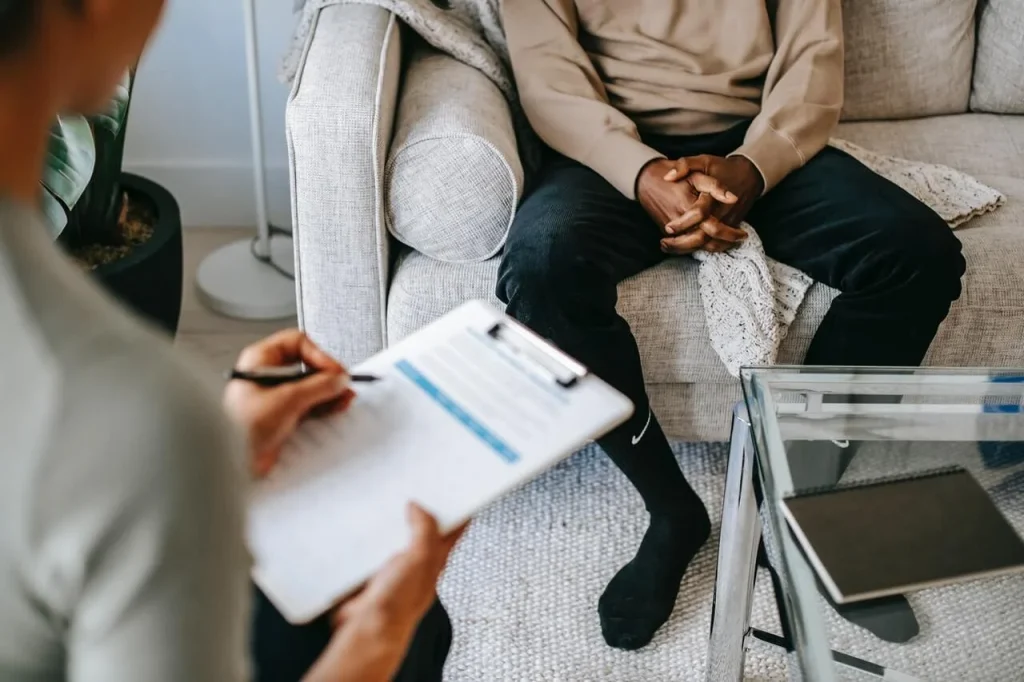Mental health care is of utmost importance nowadays. With all the pressure that’s going on in our world, it is undeniably destructing our mental health bit by bit. The ongoing pandemic, non-stop issues, political wars, and maybe our war with ourselves, it is getting dangerous. May the problem be with our job, our school life, our family, our parents, or the crisis that you are facing yourself, talking to a therapist and going to therapy sessions can help ease or even remove the detrimental effects that problems give you.
Talking therapies entails discussing your ideas, emotions, and behavior with skilled experts and medical doctors. Describe what’s running on in your thoughts and how it leaves you feeling to see if there are any tendencies you’d like to modify. It might assist you in determining where and why you have unpleasant sentiments and ideas.
For this blog, We prepared different occurrences or events that might be taking a toll on your mental health. If one of these is your problem, then grab some tea and relax as we explain how therapies can help your mental health problems.

Reasons why talking to a therapist can help you with your mental and emotional problems.
It helps with depression.
Depression is among the most prevalent mental illnesses worldwide. It goes beyond grief over a catastrophe or a phase of grieving following the death of a loved one. Chronic unhappiness is a factor that reduces one’s standard of living. Sleep disturbances, eating abnormalities, and strong emotions or apathy are all common symptoms of depression. Individuals suffering from these conditions may benefit from treatment. The foundation of depression psychotherapy is trust and psychological support. A good therapist offers a stable, confidential environment for clients to heal. They investigate the origins and potential solutions to their problems together. A licensed therapist assists people in developing new ways of thinking and acting. Therapy can help people reconnect with their loved ones and pursue their passions.

It aids anxiety.
Anxiety is distinct from the intermittent tension that everyone encounters. Clinical anxiety is a persistent condition. People who suffer from anxiety disorders are always on edge. Even if there is no proof to support their fears, they may believe something horrible will transpire. This condition can easily lead to social problems. Some people with anxiety have trouble controlling their sentiments. They may become excessively self-aware or emotionally distant. Psychotherapy can assist persons with anxiety in regaining their sense of direction in life. By recognizing the underlying factors, a person may put their feelings into context. Rather than being immobilized by dread, people may understand and embrace their feelings, allowing them to make genuine progress toward their objectives.

It can help you manage stress.
You may need a therapist to assist you in identifying the primary stresses in your life if you decide to engage with one for dealing with stress. Talk therapy can help you identify the stresses that are causing you the greatest problems. In addition, counseling provides a secure space for you to express all of your feelings. Therapy procedures allow patients to cope with and release the sentiments that have built up in this figurative bag, lowering the tension response from the body. By confronting and resolving one’s challenges and identifying a settlement or peace with them, one’s stress levels are reduced, the sympathetic nervous system is relaxed and turned off, and the stress chemicals adrenaline, noradrenaline, and cortisol are reduced in the body.

It can help you find an effective coping mechanism.
Those who find it tough to manage to worry, tension, or rage may develop a dysfunctional coping technique. Counseling sessions may be a secure, unconditional positive regard forum for an individual to examine their coping mechanisms and identify how they aid or impede emotional stability. It’s critical to assist clients in identifying achievable coping methods to include in their daily lives in order to handle stress in a positive and functional manner. Effective coping skills may frequently aid in the enhancement of mental and emotional health. Individuals who can adapt to severe or painful events.

Therapists provide self-care tips
Self-care is a critical component of dealing with stress, and coming up with ways for patients to include self-care into their normal schedule can be highly beneficial in controlling general distress while coping skills can assist battle stress at the moment. Yoga, breathing exercise methods, playing music, or discovering hobbies that you like and having them as a focus in your everyday life are all instances of this. What more so with cognitive therapy. Therapy may frequently reveal the source of a failure to take care of one’s own needs. If depression is the root of the problem, counseling may usually help ease illness and increase one’s mood, allowing one to resume self-care.
Inability to provide for oneself because of a need to satisfy or concern for someone else, as shown in a dysfunctional connection or in the instance of too demanding members of the family, might suggest a problem with self-image and/or taking control of the situation. Therapy can aid in the development of a positive consciousness and the ability to say no to people who ask for much more than that.

They can help with obsessions
Obsessions are undesirable ideas that endure. Obsessions are generally focused on a single subject or aim. Compulsions are unreasonable acts that people feel compelled to undertake repeatedly. Compulsive tendencies are frequently employed to reduce the tension generated by obsessions. A mental health expert can assist persons with these disorders in examining their behavior realistically and offer emotional support. They show a person’s bad mental habits and provide constructive approaches to compulsions. Individual people can interrupt the pattern of their sorrow with assistance.
All in all…
Engaging or participating in a clinical alliance with psychologists, therapists, mental health professionals, or counselors allows you to explore and analyze your ideas, feelings, emotions, and behavioral patterns. It may also assist you in developing stress management techniques and practices to point you in the right direction and handle daily pressures and discomfort related to your condition. So if you feel burned out or tired with your current situation, why not call up a therapist so that they can help in assessing your feelings better?
The good with therapy nowadays is that there is more than one way to do therapy sessions. In-person therapy sessions are prevalent but now you can do so via online therapy sessions, family therapy sessions, and group therapy sessions. You can even get therapy in your own RFO House and Lot.


